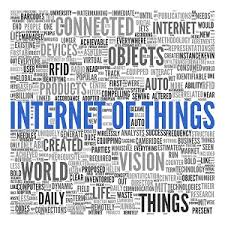The Industrial Internet Consortium
Ajit Deshpande - April 2, 2014 - 0 Comments
 The Internet of Things has been a hot discussion topic (as well as an emerging trend) over the past few years. As a term, it encompasses a broad range of sectors, including M2M, smart consumer end-points, wearable devices, sensor networks, machine learning, factory-automation, and so on. As devices and data continue to proliferate, interoperability across IoT devices, platforms and networks is becoming more and more a concern. Well, last week, a step was taken towards alleviating this concern, with the announcement of the Industrial Internet Consortium (IIC), formed by Cisco, IBM, GE, Intel and AT&T, with the objective of creating an interoperability standard around IoT.
The Internet of Things has been a hot discussion topic (as well as an emerging trend) over the past few years. As a term, it encompasses a broad range of sectors, including M2M, smart consumer end-points, wearable devices, sensor networks, machine learning, factory-automation, and so on. As devices and data continue to proliferate, interoperability across IoT devices, platforms and networks is becoming more and more a concern. Well, last week, a step was taken towards alleviating this concern, with the announcement of the Industrial Internet Consortium (IIC), formed by Cisco, IBM, GE, Intel and AT&T, with the objective of creating an interoperability standard around IoT.
There have been attempts made in the past around standardization, most notably the AllSeen alliance launched by Qualcomm and a number of startups to push Qualcomm’s AllJoyn as a standard, with somewhat of a consumer end-point focus. In comparison, IIC seems to be more focused on industrial use-cases. Together, these are two huge steps in providing structure to the infrastructure layer for IoT. At the same time, the one player conspicuous by its absence in these standardization efforts is Google with its Android OS. If, as expected, Android ends up becoming the OS around end-points and network controllers, then likely Google will hold all the aces around interoperability, potentially making IIC and AllSeen and others somewhat redundant.
So, we will see how things shape up. Indeed, the lack of interoperability within IoT has in the past been a bit of a deterrent for early stage venture investors (beyond the wearable device space, which has been able to raise good money on the back of successful crowd-funding campaigns), so hopefully IIC and AllJoyn and other initiatives help free up startups in this space to focus on what might eventually matter the most – data consolidation, data processing, and data analytics.